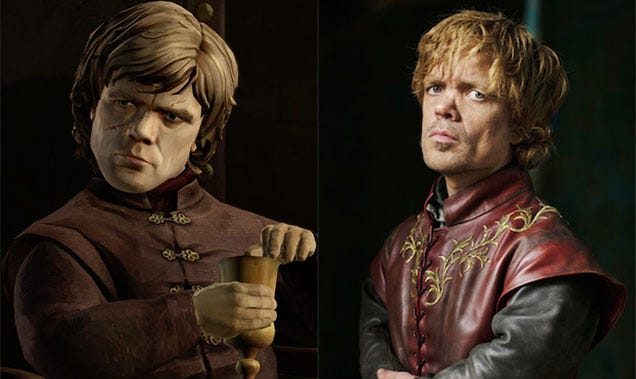 |
| All that is involved in the transmedia contributes to one great idea. |
Transmedia, on the other hand, expresses an idea or tells a story also on various forms of media but approaches this idea or story from different angles. It is not the same story told over and over again. So this usually begins with story coming from a book or movie and then becomes a video game, a television show, etc. Think of transmedia kind of like a big news story that requires second day stories to better understand the impact of the initial news break. In regards to entertainment, Henry Jenkins states that the purpose of transmedia storytelling is to create a unified and coordinated entertainment experience. And through that, transmedia proves that there can be more than one source to gain information about the story. This also aims to make storytelling more interactive for the viewer/user in order to more effectively understand the big story.
 |
| What's most known as Game of Thrones is based on the novel series called A Song of Ice and Fire. |
So one example would be the book series by George R.R. Martin called A Song of Ice and Fire. The first book of the series which is what the whole story is known by, A Game of Thrones, was published in 1996. Four more books followed with two more still waiting to be published. But even though the book series is not yet completed, it was brought to the television screen in 2011 with HBO as Game of Thrones. For the most part, the book-to-television adaptation was spot on until Martin decided to change what happened in the tv show in comparison to the books. This could portray the use of transmedia because those who have read the books would see other routes the story has taken on the tv screen, thus leading them to entertain even more possibilities. And according to Martin himself, the tv series will actually end before the book series so that will be interesting for both the readers and viewers.
Stemming from the tv series, Game of Thrones also gets the video game treatment in collaboration with the company TellTale. This is a better illustration of how transmedia elevates telling a story. The video game is about a smaller, lesser-known house (House Forrester) that isn't at all shown in the tv series and is briefly mentioned in the books. You play as these people in this house but you deal with the main characters of the story as you fight for survival. And you play a vital role in the grand scheme of the storyline. These characters are also voiced by the actors in the tv show. In addition to that, the storyline of the game isn't completely fixed straight through. Each decision made as your character have different outcomes. So this makes the experience truly interactive while still maintaining the likeness of the television show and book.
 |
| Peter Dinklage voicing Tyrion on the right and acting as Tyrion on the left. |
Jenkins says that a good transmedia franchise works to attract multiple constituencies by pitching the content somewhat differently in the different media. While it was mainly due to streamlining the story, George R.R. Martin visually brings different outcomes in the television series that the readers of his book can entertain and see for themselves how it compares. TellTale lets the gamers play a part and contribute in this "game of thrones" by putting them in the story, letting them make the decisions of how House Forrester will survive as well as interact with House Lannister or House Stark.
Book readers may not be big on tv, viewers may not be as compelled by words, and either may not like playing video games. But if you're all three, you get to approach the overall world of Game of Thrones but various viewpoints and entertained possibilities. There's much more participation involved when you're playing the video game and are invested in role-playing. And the use of various platforms helps potentially invoke interest in the tv watcher to read the books or the book reader to play the video game. Business-wise, that increases profit for George R.R. Martin through HBO, TellTale, Microsoft, Sony, and makes profit for the companies mentioned as well.
Works cited:
1. Jenkins, Henry, "Searching for the Origami Unicorn", Convergence Culture: Where Old And New Media Collide, (New York: New York University Press, 2006)
No comments:
Post a Comment